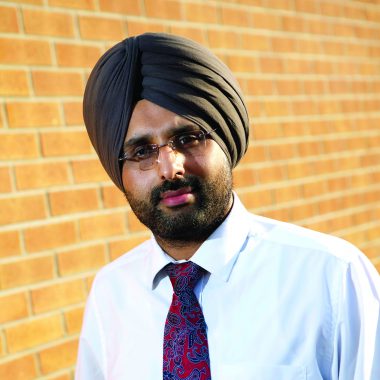We must foster goodwill to defend the NHS

The recent warning from outgoing BMA chair, Dr Mark Porter, that the NHS is running on fumes is the kind of headline we have now got used to seeing on a daily basis. With the health system running on its reserves, its resilience has been badly affected. In fact, there is hardly any resilience. The NHS and the social sector are in ‘winter pressures’ mode all year. There is simply no slack in the system.
Resilience of a health system such as the NHS relies a lot on ‘goodwill’. It relies on the goodwill of the patients, these days referred to as the ‘consumer’ or the ‘end user’. It also relies on the goodwill of those who make the system work, ie, its staff. It relies on various parts of health and social care working together in harmony without worrying about whose job description it is, to the end outcome of quality care for the patient. Sadly, goodwill is an increasingly scarce commodity. And, let us be clear here, that it is purely down to those who expect the system to do more with less resource.
The race to balance the books and achieve the impossible, to commission safe and high quality services with a higher demand but with a diminished resource, is resulting in casualties. It has caused a divide between the enthusiasts and the realists, the optimists and the pessimists, be they in primary or secondary care, but also between the commissioners and the providers, as never seen before. The unsustainable workload pressures on primary, community and secondary care has led to us robbing Peter to pay Paul. While initiatives such as the BMA ‘quality first’ templates have been one of the many welcome ways to help primary care, they also risk straining the relationship between primary and secondary care and further eroding goodwill when territories are being tightly marked.
We are proud of general practice as the bedrock of the NHS and our strength lies in continuity of care, the cradle to grave approach, the fact that we see our patients and their families and deal with their health as well as social issues. We can be their doctor, mentor, counsellor and friend. We deal with them whether they have a trivial or a complex illness and this creates a huge amount of goodwill which helps deal with uncertainty which in turn makes us cost-effective. This is being eroded with the erosion of continuity and contributes to a more risk-averse and hence, a more expensive system.
The territories are not only being marked between various parts of the health system but also between patients and healthcare staff. Not all of this is a step backward and sharing of responsibility must be a vital component of moving forward but the right balance must be debated.
Goodwill is a very precious commodity and has a synergistic effect on the system resilience. We must endeavour to tap more of it for our sake and for the sake of our patients. We all are working in a system which is on its knees, irrespective of whether we are a commissioner or a provider, a hospital doctor or a general practitioner, a manager or a clinical member – we are all facing the same challenge. We all must speak in the same voice about the fact that a first world developed country such as ours needs to treat the health of its population with justice and fairness.
The system is grossly under-resourced in terms of both funding and the workforce, but also in political support and commitment. Let us not collude with those who make an explicit political choice to continue to defund the NHS but instead, let us work with our patients to get them to treat our health service with due respect.
As Dr Porter said: ‘It does not have to be this way.’
Dr Kamal Sidhu is a GP trainer in Blackhall, County Durham









